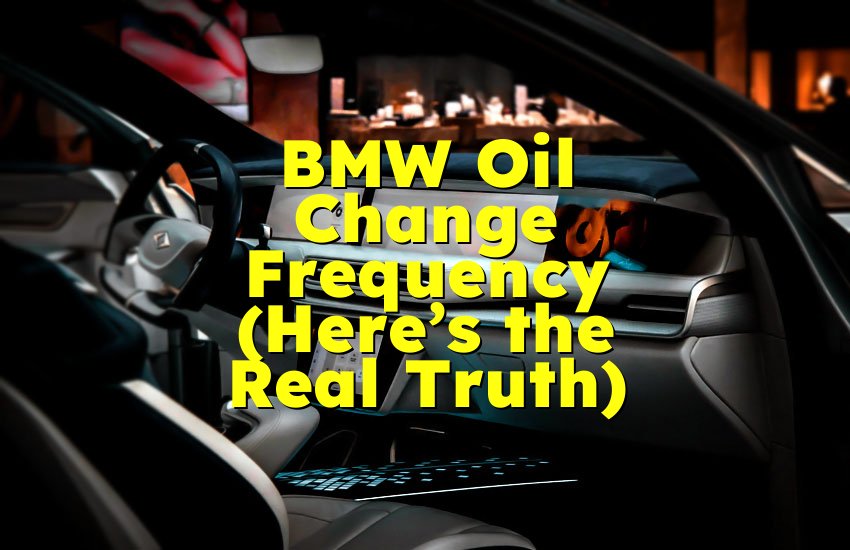As an Amazon Associate, I earn from qualifying purchases at no extra cost to you.
Why Does My Car Take Forever to Warm Up? Find Out the Solution
Imagine stepping into your car on a cold winter morning, shivering as you turn the key in the ignition. You expect the engine to roar to life, filling the cabin with warmth and comfort. Instead, you're met with a frustrating wait as the engine struggles to reach a comfortable temperature. This common scenario leaves many drivers wondering, “Why does my car take forever to warm up?” Let's explore the reasons behind this annoying issue and what you can do about it.
Understanding the Basics of Your Car's Engine
To grasp why your car takes so long to warm up, it's important to understand how an engine works. Every vehicle has an internal combustion engine, which relies on a mixture of air and fuel to produce power. When you start the car, this mixture ignites, creating a controlled explosion that pushes the pistons and ultimately turns the wheels. However, this process doesn't happen instantly.
The Role of Engine Temperature
An engine runs most efficiently at a certain temperature, typically around 195 to 220 degrees Fahrenheit. When you first start your car, the engine is cold, and it takes time for the fluids to warm up. As the engine operates, it generates heat, which is absorbed by the coolant circulating through the engine. This process allows the engine to reach its optimal operating temperature. If your car takes a long time to warm up, several factors may be at play, including the type of engine, the ambient temperature, and the condition of your vehicle’s components.
Importance of Engine Warm-Up
Warming up your engine is crucial for various reasons. A warm engine operates more efficiently, reducing emissions and improving fuel economy. Additionally, it helps lubricate the moving parts within the engine, reducing wear and tear. In cold weather, oil can thicken, making it harder for the engine to turn over smoothly. A properly warmed-up engine ensures that all components work in harmony, enhancing your vehicle's performance.

Common Reasons Your Car Takes Forever to Warm Up
Understanding the reasons your car takes a long time to warm up can help you diagnose potential problems. Here are some common issues to consider:
1. Low Coolant Levels
Coolant is essential for regulating your engine's temperature. If your car's coolant level is low, it can take longer for the engine to warm up. Coolant absorbs heat from the engine and circulates it through the radiator, where it releases that heat into the air. A shortage of coolant means there is less fluid to absorb heat, causing the engine to struggle to reach its optimal temperature.
To check your coolant level, look at the reservoir tank, usually located near the engine. If the level is below the minimum line, it's a sign that you need to add more coolant. Always use the type specified in your owner's manual, as different engines require different coolant formulations. Additionally, regularly inspect for leaks, as a leak can lead to a drop in coolant levels, making your engine take even longer to warm up.
2. Thermostat Issues
The thermostat plays a crucial role in regulating your engine’s temperature. It acts as a valve, opening and closing to control the flow of coolant between the engine and the radiator. When you first start your car, the thermostat remains closed, allowing the engine to warm up quickly. Once the engine reaches a certain temperature, the thermostat opens, letting coolant flow to the radiator to prevent overheating.
If your thermostat is stuck open, it will continuously allow coolant to flow to the radiator, making it difficult for the engine to reach its ideal temperature. This issue can lead to longer warm-up times and poor engine performance. To check if your thermostat is functioning correctly, monitor your engine temperature gauge. If it remains low even after driving for a while, the thermostat may need to be replaced. Replacing a faulty thermostat is generally an inexpensive fix, but it's essential to address this issue promptly to avoid further engine problems.
3. Cold Weather
Extreme cold weather is one of the most common reasons for prolonged warm-up times. When temperatures drop, the engine oil thickens, creating more resistance against moving parts. This thick oil makes it harder for the engine to turn over, leading to longer warm-up periods. In addition, the colder the ambient temperature, the longer it takes for the engine to generate heat.
Using the correct type of oil can help mitigate this issue. During winter, consider switching to a lighter oil with a lower viscosity rating. This type of oil flows more easily at lower temperatures, allowing your engine to warm up more quickly. Additionally, allowing your car to idle for a few minutes before driving can help the engine reach a more comfortable temperature, though modern vehicles generally warm up faster when driven rather than idling.
4. Worn Engine Components
Over time, various engine components can wear down, leading to inefficiencies that affect warm-up times. For instance, worn piston rings can allow oil to seep into the combustion chamber, causing incomplete combustion and longer warm-up periods. Similarly, worn or damaged hoses can affect coolant circulation, preventing it from reaching the engine effectively.
To address these issues, it's crucial to follow your vehicle’s maintenance schedule. Regularly changing the oil, replacing air filters, and inspecting belts and hoses can help keep your engine running smoothly. If you notice a significant decline in performance or warm-up time, consider having a mechanic conduct a comprehensive inspection to identify any worn components that may need replacement.
5. Faulty Sensors
Modern cars are equipped with a variety of sensors that help regulate engine performance, including the coolant temperature sensor and the mass airflow sensor. These sensors monitor the engine’s temperature and the amount of air entering the combustion chamber. If these sensors malfunction, they can send incorrect information to the engine control unit (ECU), resulting in inefficient fuel mixtures and longer warm-up times.
If you suspect that a sensor may be causing your warm-up issues, it's best to have a professional diagnose the problem. A mechanic can run a diagnostic test to check for error codes and determine which sensors may need replacement. Keeping these sensors in good working condition is essential for optimal engine performance and efficiency.
6. Inefficient Fuel Mixture
The engine relies on a precise balance of air and fuel for efficient combustion. If the fuel mixture is too rich (too much fuel) or too lean (too little fuel), it can affect the engine’s ability to warm up quickly. A rich fuel mixture can lead to incomplete combustion, while a lean mixture can cause misfires and poor engine performance.
Several factors can contribute to an inefficient fuel mixture, including a malfunctioning fuel injector, a clogged air filter, or a faulty mass airflow sensor. Regular maintenance, such as changing the air filter and cleaning the fuel injectors, can help ensure that your engine receives the correct fuel mixture. If you notice signs of poor performance or long warm-up times, consider having a mechanic inspect these components to identify any issues.
7. Exhaust System Blockages
The exhaust system plays a vital role in expelling gases produced during combustion. If there's a blockage in the exhaust system, it can cause back pressure, making it difficult for the engine to operate efficiently. This back pressure can hinder the engine’s ability to reach optimal temperatures, resulting in longer warm-up times.
Common causes of exhaust blockages include a clogged catalytic converter or damaged exhaust pipes. If you notice strange noises from the exhaust or a significant drop in performance, it's essential to have your exhaust system checked. Regular inspections and prompt repairs can help prevent blockages and keep your engine running smoothly.
8. Old or Improperly Installed Radiator
The radiator is responsible for cooling the engine by dissipating heat. If the radiator is old or improperly installed, it may not function effectively, leading to longer warm-up times. An inefficient radiator can prevent the engine from reaching its optimal operating temperature, causing frustration for drivers.
To ensure that your radiator is functioning correctly, check for signs of corrosion or leaks. If you notice any issues, it's best to consult a mechanic for repairs or replacement. Regularly flushing the radiator and replacing the coolant can also help maintain its efficiency, ensuring that your engine warms up quickly and effectively.
9. Problems with the Heating System
The heating system in your car relies on hot coolant flowing through the heater core. If there are issues with this system, it can impact how quickly your engine warms up. Problems may include a malfunctioning heater core, air bubbles in the cooling system, or a faulty blower motor.
If you notice that your car’s heater isn’t blowing hot air, it might be time to inspect the heating system. Bleeding the cooling system to remove air bubbles and replacing a faulty heater core can help restore proper function. Ensuring that your heating system is in good working order not only improves warm-up times but also enhances your comfort during colder months.
10. Fuel Quality
The quality of the fuel you use can also influence how quickly your car warms up. Low-quality fuel can lead to poor combustion, which affects the engine’s overall performance and warm-up time. Fuel that contains too much ethanol or other additives can create problems in the combustion chamber, leading to inefficiencies.
To ensure that your engine runs smoothly, always use fuel from reputable sources. Regularly filling up at trusted gas stations can help you avoid low-quality fuel and maintain your engine's efficiency. Additionally, consider using fuel additives designed to clean the combustion chamber and improve overall performance.
Maintaining Your Car for Efficient Warm-Up
Now that we've explored the reasons your car may take longer to warm up, it's essential to understand how to maintain your vehicle for optimal performance. Here are some tips to keep your car running efficiently and minimize warm-up times.
Regular Oil Changes
Changing your oil regularly is one of the most important steps in maintaining your car’s engine. Clean oil ensures proper lubrication, reducing friction between moving parts and allowing the engine to reach its optimal temperature more quickly. Check your owner's manual for the recommended oil change interval, and consider switching to synthetic oil, which can flow better in cold temperatures.
Keeping the Cooling System in Good Shape
Regularly inspect your cooling system to ensure it is functioning correctly. Check the coolant level and look for signs of leaks or corrosion in the radiator and hoses. Flushing the cooling system every few years can help prevent buildup and keep the coolant fresh. This maintenance ensures efficient heat transfer, allowing your engine to warm up more quickly.
Using the Right Fuel
As mentioned earlier, using high-quality fuel is crucial for optimal engine performance. Look for fuel that meets the specifications outlined in your owner's manual. Additionally, consider using fuel additives occasionally to help clean the fuel system and improve combustion efficiency.
Monitoring Engine Performance
Pay attention to how your car performs. If you notice unusual noises, drops in performance, or extended warm-up times, it's important to address these issues promptly. Regularly monitoring your engine's performance can help you catch problems early before they become more significant and costly.
Scheduling Regular Inspections
Regular inspections by a qualified mechanic can help you identify and address potential issues before they escalate. During these inspections, the mechanic can check the thermostat, sensors, and exhaust system for any signs of trouble. Following a maintenance schedule will help keep your vehicle running smoothly and efficiently, reducing warm-up times.
Preparing for Cold Weather
If you live in an area with harsh winters, consider using a block heater. A block heater warms the engine coolant, making it easier for the engine to start and warm up quickly on cold mornings. Additionally, using a battery warmer can help your battery perform better in low temperatures.
Parking in a Garage
Whenever possible, park your car in a garage or sheltered area. This practice helps protect the vehicle from extreme cold, making it easier for the engine to warm up. If garage parking is not an option, consider using a car cover to shield it from the elements.
Understanding Your Vehicle's Features
Many modern vehicles come equipped with features designed to enhance performance and efficiency. Familiarize yourself with these features, such as remote start systems that allow you to warm up the engine before you get in. Understanding how to use these features can help you get the most out of your vehicle.
Keeping Tires in Good Condition
While it may seem unrelated, maintaining your tires can also impact your car’s overall performance. Properly inflated tires improve fuel efficiency and handling, making it easier for the engine to reach its optimal temperature. Regularly check your tire pressure and replace worn tires as needed.
Driving Style Matters
Your driving style can impact how quickly your car warms up. Avoid excessive idling and instead drive at moderate speeds to help the engine reach its operating temperature more quickly. Gentle acceleration and maintaining a steady speed can aid in efficient warming.
I hope this article helps you understand why your car takes forever to warm up and provides useful tips for improving warm-up times. By paying attention to maintenance and understanding the factors at play, you can keep your vehicle running smoothly and enjoy a comfortable ride even in the coldest weather.
Are These Questions in Your Mind?
Is it normal for my car to take a long time to warm up?
While some warm-up time is expected, especially in cold weather, prolonged warm-up times may indicate underlying issues.
Can low coolant levels affect warm-up times?
Yes, low coolant levels can lead to longer warm-up times since there is less fluid available to absorb and distribute heat.
Do I need to replace my thermostat if my car takes too long to warm up?
If your thermostat is stuck open or malfunctioning, it may need replacement to help your engine reach the proper temperature more efficiently.
Is it safe to drive my car if it takes a long time to warm up?
If your car is taking excessively long to warm up, it's best to have it inspected, as there may be underlying issues that could affect performance and safety.
Can driving style impact my car’s warm-up time?
Yes, driving at moderate speeds and avoiding excessive idling can help your engine reach its operating temperature more quickly.
Do I need to change my oil more often in winter?
Regular oil changes are essential year-round, but using the right oil for winter conditions can help improve warm-up times.
Is it worth using a block heater in cold climates?
Using a block heater can significantly reduce warm-up times in extremely cold climates, making it easier for your engine to start and warm up.
Can a clogged air filter affect warm-up times?
Yes, a clogged air filter can restrict airflow to the engine, affecting combustion efficiency and warm-up times.
Is using a car cover effective in cold weather?
Yes, using a car cover can help insulate your vehicle from cold temperatures, making it easier for the engine to warm up.
Can poor fuel quality affect my car’s performance and warm-up time?
Yes, low-quality fuel can lead to inefficient combustion, impacting overall performance and prolonging warm-up times.











